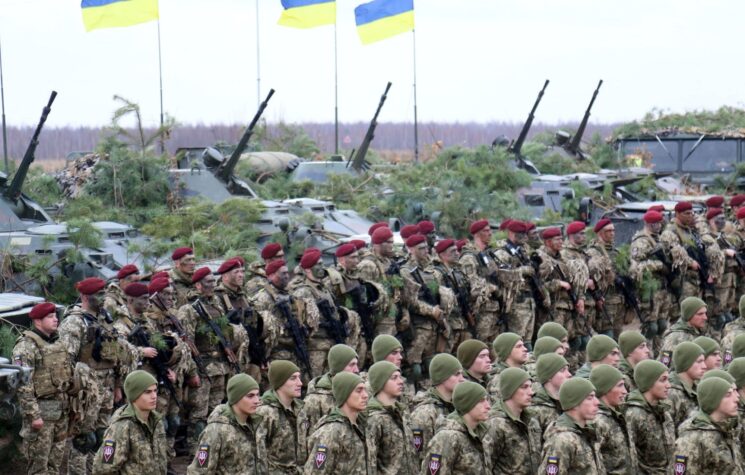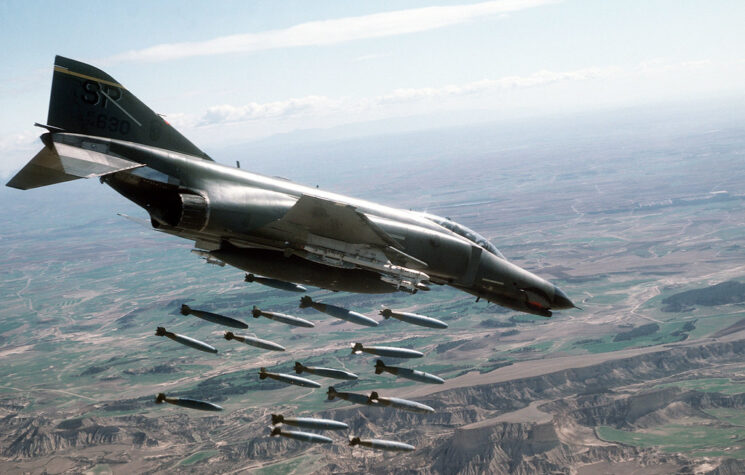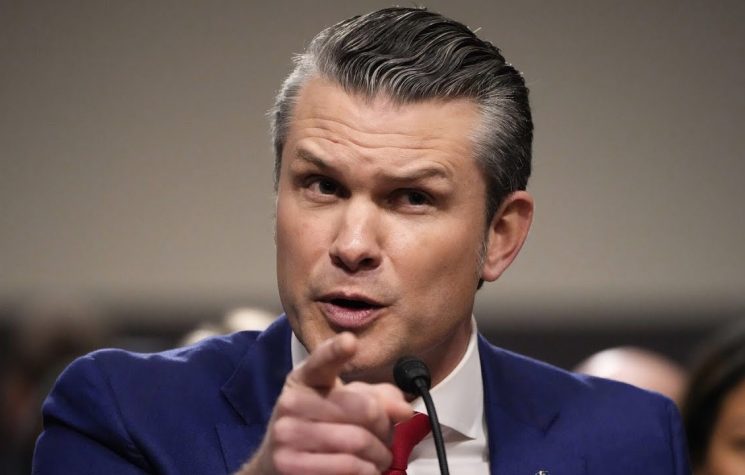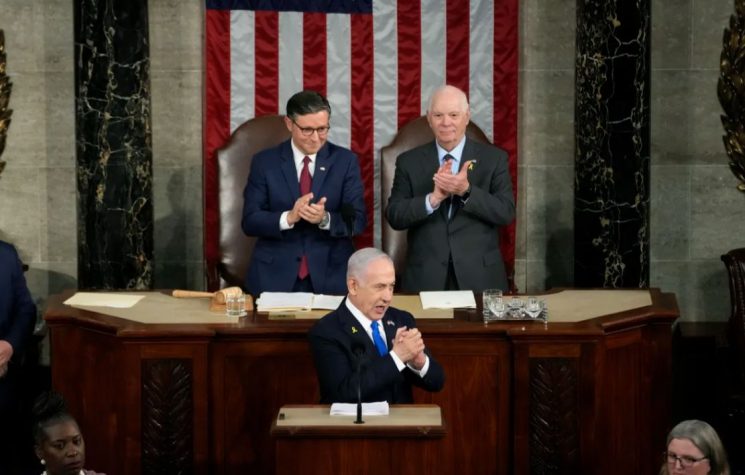The money rolls in, but it is a strange and murky scene, Brian Cloughley writes.
On December 6 the Stockholm International Peace Research Institute, otherwise SIPRI, released a report showing that “arms sales increased even as the global economy contracted by 3.1 per cent during the first year of the pandemic.” Then in an ironic counterpoint next day The New York Times reported that the House of Representatives had “overwhelmingly passed a $768 billion defence policy bill” which among other things, “put the Democratic-led Congress on track to increase the Pentagon’s budget by roughly $24 billion above what President Biden had requested.” As the Times noted, the allocation of additional money caused concern to the many people who had hoped that Democratic control of the House would ensure at least a modest reduction in Washington’s vast military expenditure.
To put the amount of 24 billion dollars in perspective it is illuminating to bear in mind that the U.S. aid budget for international assistance in the Covid crisis is one-sixteenth of what the Congress cynically over-allocated to the nation’s military. As indicated by the State Department, “The United States has continued to demonstrate its global leadership in public health and humanitarian assistance in the face of the COVID-19 pandemic… Since the outbreak of COVID-19, the U.S. Government has announced more than $1.5 billion [for] emergency health, humanitarian, economic, and development assistance specifically aimed at helping governments, international organizations, and non-governmental organizations fight the pandemic.” The allocation covers “more than 120 countries.”
It so happened that the defence policy bill went through Congress on the same day that President Biden, the comparatively parsimonious military spender, had a video conference with President Putin in which, as the White House stated in a media release on December 7, the U.S. stance concentrated on “the deep concerns of the United States and our European Allies about Russia’s escalation of forces surrounding Ukraine” to which U.S. military aid now totals over 1.5 billion dollars — just a bit more than its international Covid assistance.
Much of the cash being doled out by Washington is directed to the myriad of military equipment manufacturers, called ‘defence contractors’ which is a bland and inaccurate description for a group of highly-skilled specialists who reap enormous profits by making weapons to kill people all over the world. In another irony, one report brought attention to the fact that one of the manufacturers’ associated businesses, Analytic Services Inc, got into the top ten of the hundred most profitable government contractors “thanks in part to the Army’s $7.1 billion Covid-19 expenditure.”
Bloomberg notes that “In fiscal 2020, defense contract spending hit a record high of $447 billion – representing nearly two thirds of overall federal contract spending. It’s an impressive growth trajectory that we’ve been tracking for years. Pentagon spending surged by $140.6 billion between fiscal 2016 and 2020, with a $42 billion increase in the last year alone.” These sorts of figures are difficult to put in perspective, but one illustration is that $447 billion dollars is approximately equivalent to the Gross Domestic Product of Norway or Ireland. We’re talking big money.
And the weapons’ manufacturers make sure that the big money continues to roll in through various techniques, one of which is the simple and most effective expedient of giving generous donations to Senators and Members of the House of Representatives in Washington. The sheer cynicism of the manufacturers is hard to credit, but one example of their down-to-earth, get-it-done approach to making political contributions to lawmakers was their attitude following the armed assault on the U.S. Capitol when, as reported by Defense News (DN), there was “a pledge by dozens of American corporations in the aftermath of the January 6 insurrection to suspend political contributions, some specifically targeting Republicans who rejected Donald Trump’s election loss.”
DN quoted the spokesperson for BAE Systems as saying that “In response to the deeply disturbing violence at the U.S. Capitol on January 6th, our U.S. political action committee has suspended all donations while we assess the path forward.” It didn’t take too long for the path to be assessed, because “BAE began to reverse course on March 30 and has since given $195,000 to Democrats and Republicans alike. Its employee-supported Political Action Committee gave $15,000 on April 30 to the National Republican Senatorial Committee, led by one of eight GOP senators who voted to decertify election results: Senate Armed Services Committee member Rick Scott, of Florida.”
The amounts of money given to lawmakers is staggering, with Open Secrets figures indicating that in this financial year Lockheed Martin gave them almost a million, while approximately half a million was provided by each of General Dynamics, Raytheon, General Atomics, Intelligenesis Inc, Northrop Grumman and L3Harris Technologies. Other amounts were far from inconsequential, and although the list is too long to publish there are some individuals who stand out in the receiving line.
Democrat Representative Adam Smith of Washington State, who holds the extremely influential position of Chairman of the Armed Services Committee, states on his website that “One of the major challenges our military faces right now is dealing with the rapid pace of technology, is getting the Pentagon to better and more quickly adopt the innovative technologies that we need to meet our national security threats. Those threats are very real.” Now this may well be so, but it would be slightly more reassuring if Mr Smith had concentrated on reducing unnecessary military spending rather than insisting that his pet project, “affordable housing legislation”, was included in the Annual Defence Bill. It would also be comforting if Mr Smith of Washington, as Chairman of the Armed Services Committee, refrained from taking donations from political action committees of commercial enterprises directly associated with providing goods and services to the Pentagon.
Open Secrets details that in fundraising for 2021-2022 Mr Smith has so far received just under half a million dollars, of which Kratos Defense & Security Solutions gave him 50 thousand and L3Harris Technologies handed over 10 thousand. Nobody is saying that Mr Smith will immediately or even at any time seek to bend rules or in some other way favour those businesses who gave him money. But the question remains as to just why do all these mega-rich enterprises consider it right and proper to hand out cash to politicians? They are in the business of making money, after all, and it is unusual for any business organisation to allocate funds for other than improvement or investment. Proceeds and profits are the name of the game.
There are some positive notes to be heard in the intriguing world of political donations, and one of these concerns Representative Andy Levin who voted against the Defence Policy Bill because although he supports “having by far the strongest military in the world and the good-paying defense jobs in my district that protect our troops . . . I cannot support ever-increasing military spending in the face of so much human need across our country.” It can hardly be coincidental that there is no mention of donations from military industries in his records, but legislators like Mr Levin are few and far between, and although the world is awash with Covid, and there are so many real and urgent problems for Washington legislators to deal with, the manufacturers of weapons and providers of services to the military machine are continuing to profit and to keep the politicians on side. The money rolls in, but it is a strange and murky scene.



































